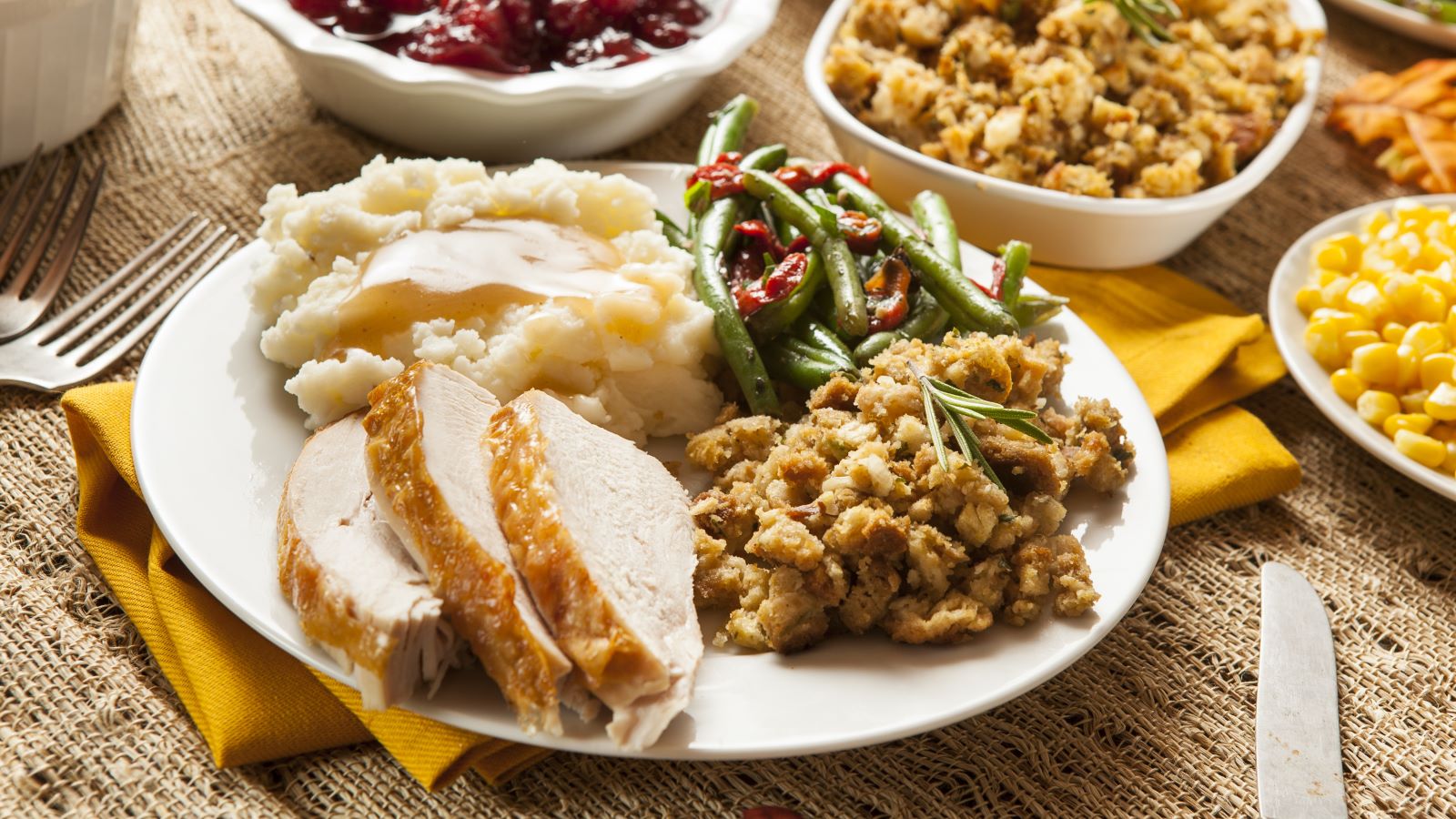<< Back
5 Healthy Changes for Your Thanksgiving Dinner

November 08, 2023
This year, politics and crazy uncles may not be the only thing to look out for at the Thanksgiving table.
It should be no surprise, but there are a few Thanksgiving staples with more calories than meet the eye.
Looking to dodge some of the nutrition pitfalls this Thanksgiving? An expert shares five ways to make your favorite Thanksgiving foods healthier.
1. Stuffing.
Deep breath in. Deep breath out. When it comes to foods that could be made more nutritious, stuffing tops the list.
Typically packed with fat, sodium and carbs, stuffing can be dangerous for anyone watching their calories. But the good news, according to Elizabeth Barclay, MBA, a registered dietitian who practices at St. Vincent’s Medical Center, is there are plenty of ways to make it healthier.
“I like using whole grain or pumpernickel bread, low sodium or homemade stock, and olive oil instead of butter. This is also a great place to add vegetables to your meal – you can add carrots, celery, mushrooms, squash, cauliflower or any other favorites.”
And most importantly, skip the boxed stuffing. Loaded with sodium, refined carbohydrates and ingredients you may not be able to pronounce, this is one dish that might be worth missing out on.
> Related: 6 Healthy Foods to Add to Your Plate This Thanksgiving
2. Gravy.
We knew some sacrifices would have to be made, but this is one of the hardest to accept.
Made with fat, flour and pan drippings, there aren’t too many ways to make gravy healthy.
“You can try substituting low sodium broth or stock to reduce the amount of salt in the gravy,” says Barclay. “But the most practical advice is to enjoy gravy in small quantities, instead of overwhelming your plate with it.”
Ultimately, if gravy helps you enjoy the other healthy foods on your plate, it’s still serving its purpose. Right?
> Want more health news? Text StartHere to 85209 to sign up for text alerts
3. Mashed potatoes.
Now it’s starting to feel personal.
With so many ways to prepare them, mashed potatoes aren’t inherently unhealthy. But if they’re loaded with whole milk and butter, it could be a different story.
“Use 2% milk or plant-based milk, instead of whole. You can also use plant-based butter to reduce the fat and cholesterol,” says Barclay.
For an even healthier option, Barclay suggests an alternative like roasted or baked potatoes.
4. Green bean casserole.
Don’t be fooled by the presence of green beans – green bean casserole is typically packed with both fat and sodium.
“Traditionally made with high sodium canned soup and fried onions, green bean casserole tends to be hiding a lot of fat and salt. But by using fresh ingredients, you can reduce both, leaving you with a more nutritious option. ”
She suggests using whole green beans and mushrooms instead of canned, 2% or plant-based milk, and a low sodium or low-fat mushroom soup.
But Barclay wouldn’t go as far as skipping the crispy onions – not on a holiday.
5. Sweet potato casserole.
As it turns out, none of the casseroles are safe.
Like mashed potatoes, it depends on the recipe, but most sweet potato casseroles include brown sugar, butter, milk and – if you’re doing it right – even marshmallows.
“You can always tone down the butter, or use maple syrup or honey instead of sugar. Add plenty of spices to give it extra flavor, without all the calories,” says Barclay. “But in this case, taking a smaller serving might be just as good an option.”
The most important thing is choosing foods you enjoy.
And Barclay’s biggest tip? Eat the foods you love.
“Thanksgiving only comes around once a year. Do what you can to create a balanced dish, with plenty of protein, complex carbohydrates and vegetables. Remember to eat slowly and enjoy the company around you! And then you can enjoy everything else – whether it’s desserts, gravy, or sweet potatoes hiding under marshmallows – in moderation.”
And when it comes to desserts, Barclay has this advice.
“Check in with yourself, and start small,” she says. “See if a small piece satisfies you. You can always go back for seconds, but you can’t undo a food coma!”